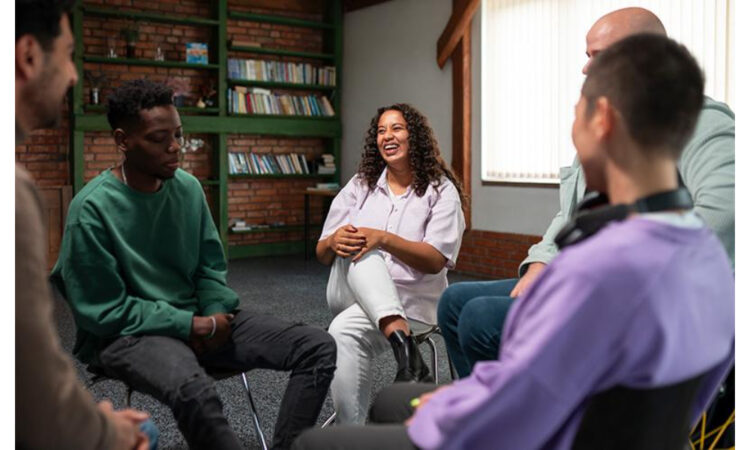
What if the key to understanding others and yourself was just one course away? In a world where mental health, communication, and behaviour shape every sector, a psychology degree in Singapore is an academic pursuit and a launchpad for transformation. Whether eyeing a diploma in psychology or considering the full degree route, the road ahead is filled with hidden benefits, surprising turns, and plenty of growth. Let’s unpack what lies behind the textbooks and clinical labs, and how psychology studies in Singapore are redefining what it means to learn, apply, and thrive.
More Than Just Therapy Training
The popular image of psychology often circles back to clinical settings with counsellors, therapists, or school psychologists. But that’s only scratching the surface.
Studying psychology, especially in multidisciplinary programmes offered in Singapore, builds critical thinking, analytical depth, and communication skills applicable in HR, marketing, education, social services, and even tech. What makes a diploma in psychology stand out is its practical foundation.
Students gain early exposure to psychological assessments, behavioural studies, and cross-cultural insights that prepare them for entry-level roles and further education. Those continuing to a psychology degree in Singapore often benefit from internships, research modules, and access to seasoned lecturers in areas ranging from abnormal psychology to organisational behaviour.
What to Know Before You Enrol
Experts from institutions recommend students ask themselves “What do I want to study?” and “Why do I want to understand the human mind?” That reflection makes all the difference.
Psychology isn’t about memorising theories. It’s about interpreting real human behaviour, often under challenging emotional and ethical circumstances.
Lecturers in top programmes advise students to explore areas like developmental psychology, ethics in psychological practice, and neuroscience early on. A strong interest in human behaviour and a willingness to read beyond the curriculum will make your diploma or degree experience more meaningful.
Choosing the Right Programme
If you’re comparing diploma or degree options in Singapore, here’s what to look for:
- Accreditation & Recognition: Ensure the course is recognised locally and potentially overseas for future postgraduate opportunities.
- Curriculum Breadth: Does it cover foundational subjects like biopsychology, cognitive processes, and statistics?
- Practical Exposure: Look for programmes with lab sessions, internship tie-ups, or hands-on research components.
- Support Services: Are career guidance or counselling services offered as part of student life?
There are institutions that offer both diploma and degree tracks, with pathways to Bachelor and Honours levels in partnership with reputable overseas universities. These programmes provide structured progression for those just starting and those looking to upgrade their qualifications.
How It Can Change You
Students often enter psychology programmes with curiosity and leave with a deepened worldview. One graduate shared how her diploma in psychology reshaped how she interacted with her family, understood her emotions, and even managed stress better.
Another, now pursuing a psychology degree in Singapore, reflected on how learning about disorders and social psychology gave her more empathy when volunteering with special needs children. The shift is academic, personal, professional, and lifelong.
Your Psychology Journey in Singapore
- Start with a Diploma in Psychology: Ideal for post-secondary students or adults looking for a career change. This covers the foundations, from research methods to human development, and basic counselling skills.
- Advance to a Psychology Degree: You’ll dive deeper into personality theory, statistics in psychology, and case study analysis. Electives in fields like industrial psychology or health psychology become available.
- Choose Your Path: Some graduates head into direct practice (e.g. assistant roles in therapy centres), while others pursue master’s programmes, research work, or non-traditional fields like UX design or organisational consulting.
- Build Your Experience: Engage in community work, internships, and online certifications to strengthen your practical knowledge.
Common Pitfalls to Avoid
Do explore various branches of psychology. Clinical work is only one of many directions. Others include consumer psychology, criminal psychology, and even sports psychology.
Don’t underestimate the workload. This is a social science grounded in rigorous research, statistics, and analysis. Group discussions and essay writing are staples. Passion helps, but persistence seals the deal.
Do build a portfolio of insights and projects. Employers in Singapore value candidates who demonstrate real-world application.
Don’t pursue psychology for prestige alone. The subject demands emotional maturity, resilience, and genuine interest in people.
Studying Minds, Shaping Futures
The journey through a diploma in psychology or a psychology degree in Singapore is far more than academic. It is a process of self-discovery, empathy-building, and critical skill development that unlocks opportunities across various sectors. Whether you’re looking to make a difference in someone’s life, climb the corporate ladder, or simply understand what drives human decision-making, psychology arms you with the knowledge and perspective to get there.
It all starts with a question: What change are you ready for? Get in touch with MDIS today.
